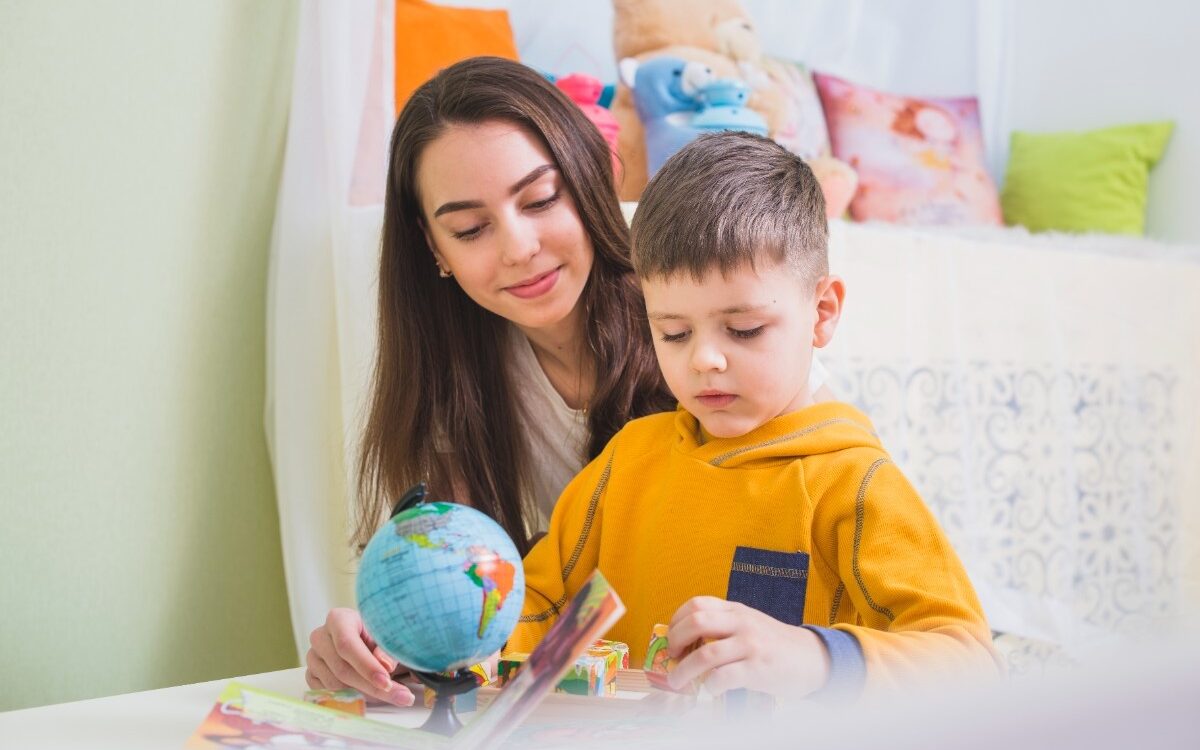At Learn & Explore Academy, we understand that academic excellence is only part of the equation when it comes to preparing children for lifelong success. Just as important is nurturing emotional intelligence (EQ)—a critical life skill that helps children understand, express, and manage their emotions, build positive relationships, and navigate the world with empathy and confidence.
In this guide, we’ll explore how emotional intelligence develops in young children, how it impacts academic and social success, and what you as a parent can do to foster these vital skills—starting as early as kindergarten.
What Is Emotional Intelligence (EQ)?
Emotional intelligence refers to a person’s ability to:
- Recognize and name their emotions
- Understand the causes of their feelings
- Regulate emotional responses in different situations
- Empathize with others
- Resolve conflicts effectively
Build strong social connections
Research shows that high EQ is linked to better academic performance, stronger mental health, and healthier social relationships—making it one of the most valuable life skills a child can develop.
Why Emotional Intelligence Matters in Early Education
At Learn & Explore Academy, emotional intelligence is interwoven into every aspect of our curriculum, from English Language Arts and Mathematics to Enrichment Classes like Art, Music, and Physical Education. Here’s why we prioritize EQ development from day one:
- Supports Learning: Children who can manage frustration, ask for help, and stay motivated are better learners.
- Builds Resilience: Emotionally intelligent children bounce back from setbacks more quickly.
- Enhances Social Skills: EQ helps children make friends, cooperate, and resolve conflicts peacefully.
- Prepares for Real-World Success: From leadership to teamwork, high EQ is a predictor of future success in school and life.
How Learn & Explore Academy Fosters Emotional Growth
Our programs are designed to cultivate both academic excellence and emotional well-being. Here’s how we nurture EQ at every level:
🌟 English Language Arts
Through reading, writing, and storytelling, students explore emotions, relationships, and diverse perspectives—building empathy and emotional vocabulary.
🧠 Mathematics & STEM
Problem-solving and teamwork activities teach persistence, patience, and collaboration—key emotional regulation skills.
🎨 Art & Music Enrichment
Our comprehensive arts program encourages children to express their feelings through music, dance, theater, and visual art—giving them creative outlets for emotional exploration.
Integrated Learning & Real-World Connections
We help students apply emotional reasoning to real-life scenarios—connecting academic content with human behavior, teamwork, and social responsibility.
Physical Education & Mind-Body Awareness
Daily physical activity supports emotional health, reducing stress, increasing focus, and improving mood regulation.
Foreign Language Learning (Mandarin & Latin)
Learning new languages like Mandarin and Latin enhances self-confidence and cross-cultural empathy—both key components of emotional intelligence.
A Parent’s Role in Building Emotional Intelligence
As a parent, you play a key role in reinforcing emotional intelligence at home. Here are some powerful ways to support your child’s growth:
1. Model Emotional Awareness
Talk about your feelings openly, and show how you manage them in healthy ways. Children learn best through observation.
Arts & Music: Creative Expression Meets Purpose
Our Arts & Music programs help students explore identity, communicate visually and emotionally, and collaborate with peers. When combined with design thinking, these classes become launching pads for community-based projects, musical storytelling, and visual problem-solving.
2. Validate Their Emotions
Let your child know it’s okay to feel upset, angry, or sad. Validation helps children process and understand their emotional experiences.
3. Teach Feeling Words
Expand your child’s emotional vocabulary. Use books, movies, or daily conversations to identify and name emotions.
4. Practice Empathy
Encourage your child to consider how others feel. Ask open-ended questions like, “How do you think your friend felt when that happened?”
5. Guide Problem-Solving
Help your child work through challenges by brainstorming solutions together. This builds resilience and confidence.
What to Expect at Learn & Explore Academy
At Learn & Explore Academy, your child is not only learning the core subjects—they’re also growing emotionally, socially, and creatively in a nurturing, well-rounded environment.
With our integrated curriculum, expert educators, and passion for unlocking every child’s potential, we empower students to become confident, compassionate, and emotionally intelligent leaders of tomorrow.
Why Choose Learn & Explore Academy?
✔️ Private School for Talented Children
✔️ Emphasis on Emotional Intelligence and Academic Excellence
✔️ Integrated Curriculum with Arts, STEM, Foreign Language & Physical Education
✔️ Real-World Learning and Critical Thinking Development
✔️ Supportive, Inclusive Environment
✔️ Located in South Brooklyn with Extended Hours
Ready to Nurture Your Child’s Full Potential?
Help your child thrive—emotionally and academically—at Learn & Explore Academy.
📅 Schedule a Visit today to discover how we’re shaping the next generation of compassionate leaders.
📞 Contact Us to speak with our admissions team.





